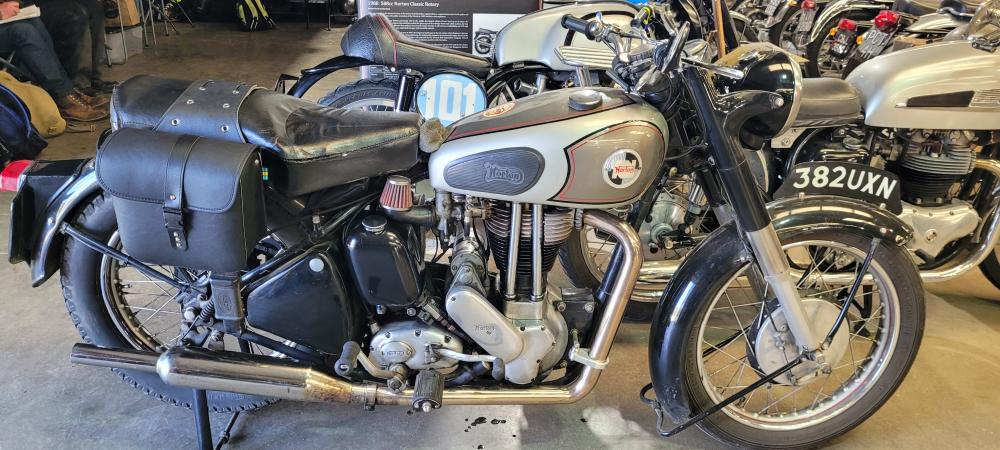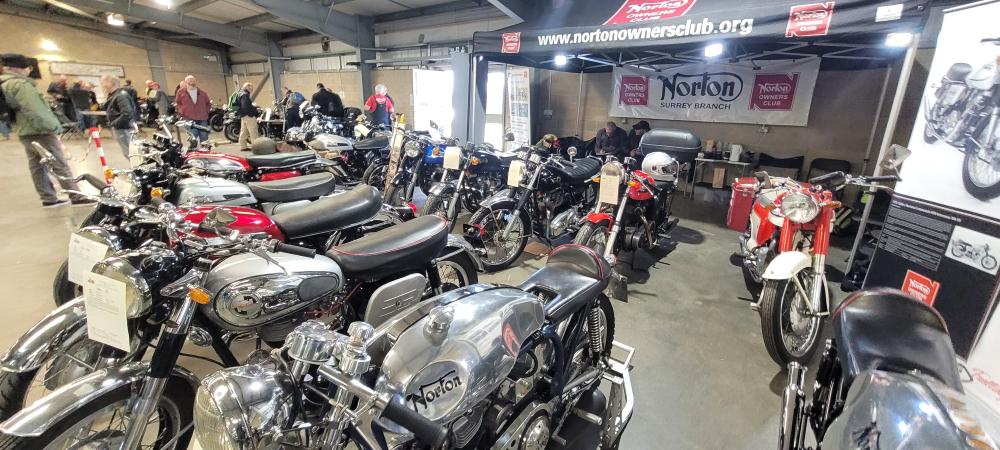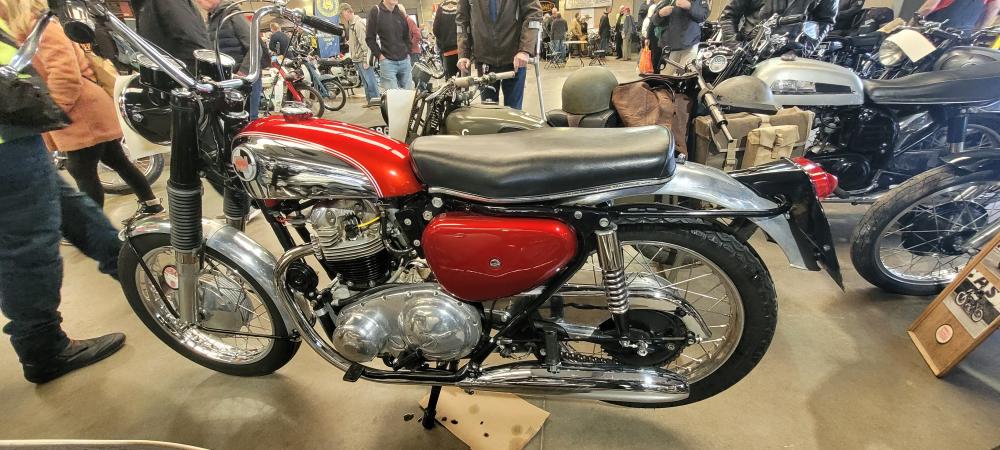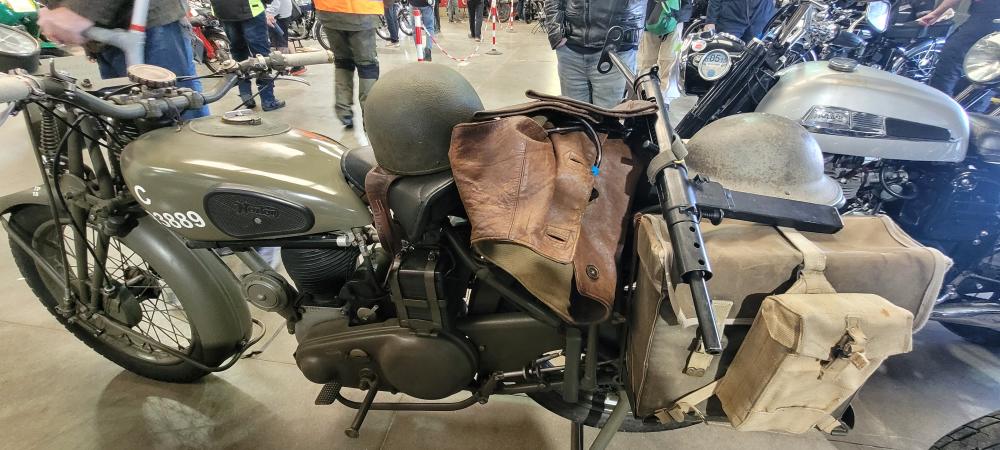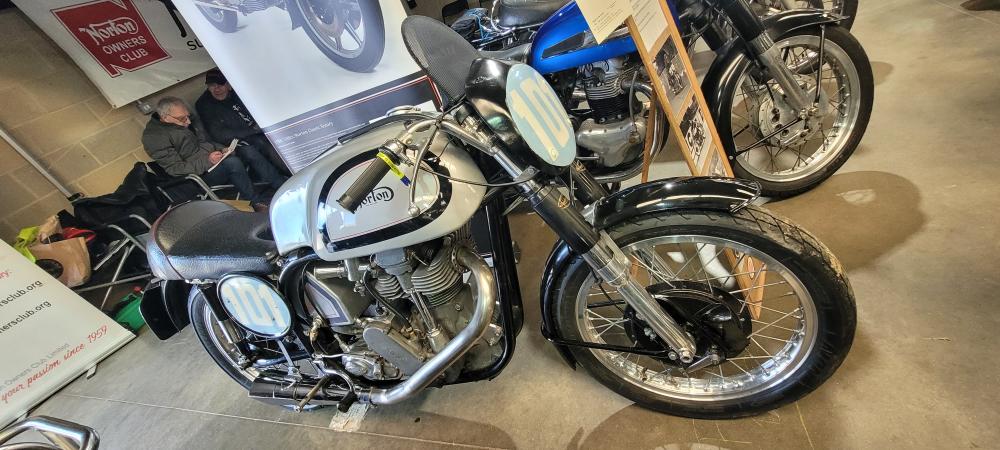A review of correspondence from NOC-L
This type of silencer, fitted to later Commandos, has often been said to restrict power
Does the later type of silencer restrict performance?
|
Does anyone know how the infamous 'bean can' silencers (mufflers) as fitted to later Commandos actually work? Never having had one apart myself I imagine it's an absorption principle but with the end plate stopping the majority of the noise and deflecting it into the absorption material inside the case. |
I remember when these came out and mostly we were disgusted at how quiet and big they were. Every one knew that for a bike to go fast it had to make lots of noise (obvious) and that extra weight and size? I don't think anyone really cared if or how they worked. It probably had a lot to do with exports to USA and that fabled and feared California Emission Control deal.
Bob Davis (bobmel@bigpond.com.au) on NOC-L 16th. Apr 1999
Black cap silencer internals
If you cut a black cap open you'll find nothing but three tubes, if my memory serves me well. The exhaust gases just go up, down, up again, and then escape through two small holes in the periphery of the black cap. They are quite efficient silencers but they do rob power. That's the main reason for fitting balanced exhaust pipes; to enable one exhaust port see both silencers and create a pressure drop.
Dave Cash (david@purdydog.freeserve.co.uk) on NOC-L 16th. Apr 1999
Black caps probably do not restrict power
I can't say that I've had a bean can / black cap apart either, but I think these are also known in some circles as 'annular discharge' mufflers. They are fairly effective in muffling, but the 'goodness' can vary depending on the manufacturer. If memory serves, Royce Creasy had an article about them in an old issue of Classic Mechanics back in the early 1980s. I had a pair of bean cans made by Campbells on my Mk.lll; their version wasn't as quiet as some I've heard, and they certainly did not stifle the performance.
The main problem with comparing bean cans directly with the peashooters is that you first need to jet the carbs to suit the muffler in use; and the other is that peashooters certainly 'sound' faster. Of course, the peashooters also sound a lot better to most enthusiasts' ears. However, after you've been riding all day at 80 to 90 m.p.h., there's a lot to be said about the decreased wear on your nerves from the relative quiet of bean cans. If I had it to do again, I would certainly fit bean cans once more.
There is another school of thought that says they 'must' be used with exhaust pipes that feature the balance tube. While there is some merit in doing this in terms of achieving greater quieting, I do not think it would have appreciable effect on performance if the jetting were adjusted for the specific configuration.
Greg Kricorissian (gregg-k@spyder-it.com) on NOC-L 17th. Apr 1999
Bean cans require balanced pipes
I put beancans on my 850 Commando last year after running peashooters. The unbalanced pipes were used and it wouldn't get out of its own way over 4000 r.p.m. No jetting change would correct the situation. Last fall I ran balanced pipes with the peashooters and found the noise level much lower, but the balanced pipes cracked after 3000 miles. They were a bad fit from the start and may have been under a strain that was installer induced from the begining.
Conclusion: if you really want to be stealthy, you need to use balanced pipes with your bean cans. To use balanced pipes you are in for some significant fitting work. RGM sells a beancan variant that has a flow through design that may be a compromise, but you would probably need to use balanced pipes to get the most out of them.
Bob Patton (bpatton@humboldt1.com) on NOC-L 17th. Apr 1999
More on the RGM version of black caps
The RGM silencers aren't a compromise, they are a true straight through, and perform well on unbalanced pipes. I drew up and had RGM make the first pair near 3 years ago. I've still got them on the bike, they are quiet at low r.p.m. but as you come on song they revert to that lovely pea shooter roar.
Dave Cash (david@purdydog.freeserve.co.uk) on NOC-L 18th. Apr 1999

